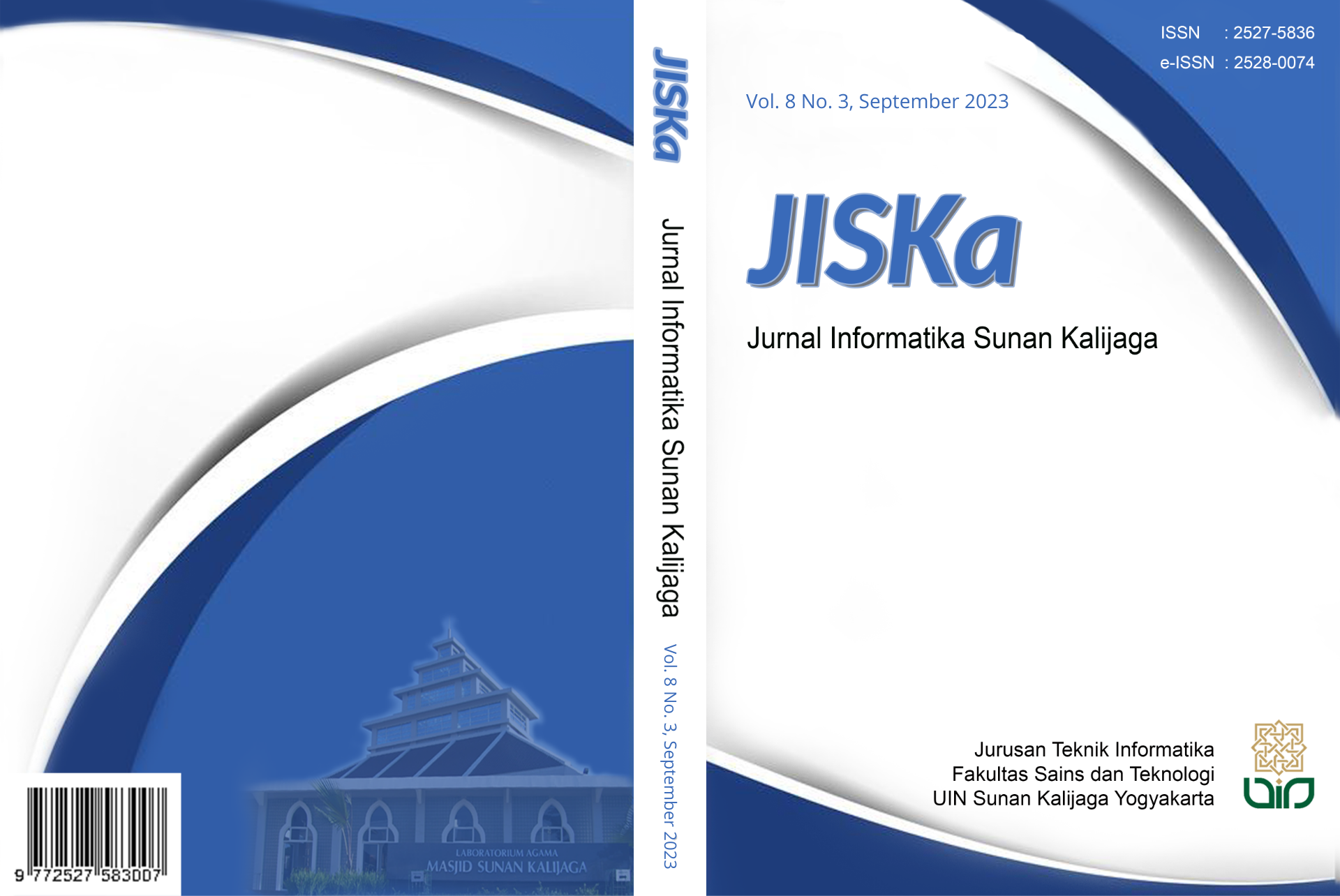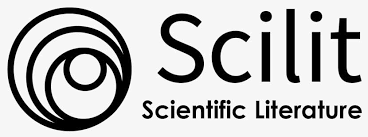COBIT 2019 Implementation for Enhancing IT Governance in Educational Institutions
DOI:
https://doi.org/10.14421/jiska.2023.8.3.210-221Keywords:
COBIT 2019, IT Governance Assessment, Educational Institution, Gallegos' Framework, Decentralized SystemsAbstract
This study explores the application of COBIT 2019 in assessing IT governance at Yayasan Bunda Hati Kudus, a prominent educational institution. The research uses the Planning, Field Work, Reporting, and Follow-Up stages to leverage the Gallegos' framework. Findings reveal that Yayasan Bunda Hati Kudus operates at IT governance level two, employing COBIT 2019 domains BAI04, BAI05, and BAI11. Notably, the organization faces challenges in implementing IT across campuses, requiring remedies for decentralized systems, operational disruptions, and unmet needs. The study underscores COBIT's efficacy in addressing IT-related challenges and governance implementation. The novelty lies in adapting COBIT 2019 to assess IT governance within an educational context, offering tailored insights for enhancing capability levels and aligning IT strategies with organizational priorities.
References
Aditya, M. A., Mulyana, R. D., & Mulyawan, A. (2019). Perbandingan Cobit 2019 dan Itil V4 sebagai Panduan Tata Kelola dan Management IT. Jurnal Computech & Bisnis (e-Journal), 13(2), 100–105. https://doi.org/10.56447/AT
Andry, J. F., Hartono, H., & Zakir, A. (2020). Assessment IT Governance of Human Resources Information System Using COBIT 5. International Journal of Open Information Technologies, 8(4), 59–63. http://injoit.org/index.php/j1/article/view/893
Atrinawati, L. H., Ramadhani, E., Fiqar, T. P., Wiranti, Y. T., Abdullah, A. I. N. F., Saputra, H. M. J., & Tandirau, D. B. (2021). Assessment of Process Capability Level in University XYZ Based on COBIT 2019. Journal of Physics: Conference Series, 1803(1), 012033. https://doi.org/10.1088/1742-6596/1803/1/012033
De Haes, S., Van Grembergen, W., Joshi, A., & Huygh, T. (2020). COBIT as a Framework for Enterprise Governance of IT. In Management for Professionals (pp. 125–162). Springer. https://doi.org/10.1007/978-3-030-25918-1_5
Fikri, A. M., Priastika, H. S., Octaraisya, N., Sadriansyah, S., & Trinawati, L. H. (2020). Rancangan Tata Kelola Teknologi Informasi Menggunakan Framework COBIT 2019 (Studi Kasus: PT XYZ). INFORMATION MANAGEMENT FOR EDUCATORS AND PROFESSIONALS : Journal of Information Management, 5(1), 1. https://doi.org/10.51211/imbi.v5i1.1410
Harisaiprasad, K. (2020, April 27). COBIT 2019 and COBIT 5 Comparison. ISACA. https://www.isaca.org/resources/news-and-trends/industry-news/2020/cobit-2019-and-cobit-5-comparison
Hartono, H., Aristo, J., Rosadi, P., Darma, W., Ekklesia, R., & Efraison, W. (2020). Evaluating IT Governance at Network Access Provider on COBIT 5 Domain EDM. Journal of Systems Integration, 11(2), 1–10. https://doi.org/https://doi.org/10.20470/JSI.V11I2.397
Iman, T. S., Destriani, M., & Ridwaudin, A. R. (2023). Audit Tata Kelola Sistem Informasi E-Sa Menggunakan Framework Cobit 2019 Domain Dss Pada Yayasan As Syifa Al Khoeriyah Subang. Global, 10(1), 20–32. http://ejournal.unsub.ac.id/index.php/Fasilkom
Karim, A., Bangun, B., Kusmanto, Purnama, I., Harahap, S. Z., Irmayani, D., Nasution, M., Haris, M., Rahmadani, & Munthe, I. R. (2020). Pengantar Teknologi Informasi. Yayasan Labuhanbatu Berbagi Gemilang.
Martallata, R. A. P., & Wasilah, W. (2022). Academic Information System Governance Using The Framework It Balanced Scorecard And The Cobit Framework 2019 (Case Study: SMAN 15 Bandar Lampung). Proceeding International Conference on Information Technology and Business, 72–80. https://jurnal.darmajaya.ac.id/index.php/icitb/article/view/3394
Muttaqin, F., Idhom, M., Akbar, F. A., Swari, M. H. P., & Putri, E. D. (2020). Measurement of the IT Helpdesk Capability Level Using the COBIT 5 Framework. Journal of Physics: Conference Series, 1569(2), 022039. https://doi.org/10.1088/1742-6596/1569/2/022039
Nugraha, D. S., & Octavira, P. (2022). Audit Tata Kelola IT dan Process Investasi Digital Library Menggunakan Pendekatan Framework Cobit 4.1. Indonesian Accounting Literacy Journal, 2(1), 254–268. https://doi.org/10.35313/ialj.v2i1.3516
Priyono, E. B. S., & Wella, W. (2022). COBIT 5.0: IT Governance Measurement on Reputable Bank in Indonesia. Ultima InfoSys : Jurnal Ilmu Sistem Informasi, 13(2), 62–67. https://doi.org/10.31937/SI.V13I2.2708
Sanjaya, D., & Fianty, M. I. (2022). Measurement of Capability Level Using COBIT 5 Framework (Case Study: PT Andalan Bunda Bijak). Ultima InfoSys : Jurnal Ilmu Sistem Informasi, 13(2), 68–76. https://doi.org/10.31937/SI.V13I2.2749
Sihotang, H. T., Zarlis, M., Efendi, S., Jollyta, D., & Husain. (2019). Evaluation of Maturity Level of Information and Communication Technology (ICT) Governance with CobIT 5.0. The International Conference on Computer Science and Applied Mathematic. https://doi.org/10.31227/OSF.IO/CQBWP
Sukamto, A. S., Novriando, H., & Reynaldi, A. (2021). Tata Kelola Teknologi Informasi Menggunakan Framework COBIT 2019 (Studi Kasus: UPT TIK Universitas Tanjungpura Pontianak). Jurnal Edukasi Dan Penelitian Informatika (JEPIN), 7(2), 210–218. https://doi.org/10.26418/jp.v7i2.47859
Tangprasert, S. (2020). A Study of Information Technology Risk Management of Government and Business Organizations in Thailand using COSO-ERM based on the COBIT 5 Framework. The Journal of Applied Science, 19(1), 13–24. https://doi.org/10.14416/j.appsci.2020.01.002
Windasari, I. P., Yonanta, M. Y., Himawati, R. Y., & Rochim, A. F. (2022). Enterprise Governance of IT Audit Using DSS & MEA COBIT 2019 (Case Study: Faculty of Engineering UNDIP). TEKNIK, 43(1), 67–77. https://doi.org/10.14710/teknik.v43i1.34121
Yayasan Bunda Hati Kudus. (2023). Visi Misi. Yayasan Bunda Hati Kudus. https://www.ybhk.or.id/visi-misi/
Downloads
Published
Issue
Section
License
Copyright (c) 2023 Gilberth Wattimury, Ahmad Faza

This work is licensed under a Creative Commons Attribution-NonCommercial 4.0 International License.
Authors who publish with this journal agree to the following terms as stated in http://creativecommons.org/licenses/by-nc/4.0
a. Authors retain copyright and grant the journal right of first publication with the work simultaneously licensed under a Creative Commons Attribution License that allows others to share the work with an acknowledgement of the work's authorship and initial publication in this journal.
b. Authors are able to enter into separate, additional contractual arrangements for the non-exclusive distribution of the journal's published version of the work (e.g., post it to an institutional repository or publish it in a book), with an acknowledgement of its initial publication in this journal.
c. Authors are permitted and encouraged to post their work online (e.g., in institutional repositories or on their website) prior to and during the submission process, as it can lead to productive exchanges, as well as earlier and greater citation of published work.










